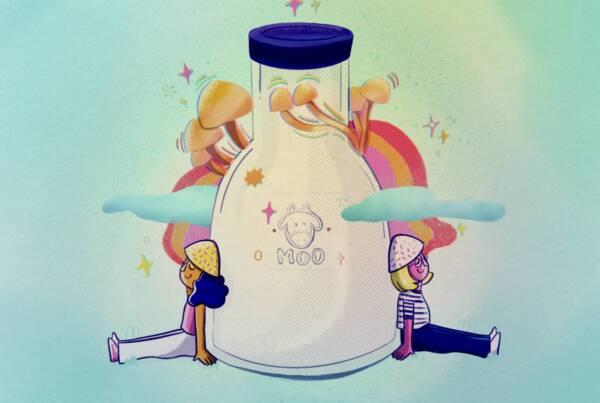Writing by Seth Lukas Hynes // Photograph by Catarina Inacio // I wrote this article to apologise to any women in the past who I may have made uncomfortable with my disrespectful behaviour. But more pertinently, I wrote this article to express solidarity from the other side, as it were, with all of Harvey Weinstein’s victims and every victim of sexual abuse. Several times in my life, I was almost somebody’s Weinstein, and this fact fills me with shame.
Writing by Seth Lukas Hynes // Photograph by Catarina Inacio
In the wake of the Harvey Weinstein scandal, in which decades of alleged sexual harassment and assault perpetrated by the influential Hollywood producer have come to light, Ontario freelance writer Anne T. Donahue posed an open question on Twitter: ‘When did you meet YOUR Harvey Weinstein? I’ll go first: I was a 17-yr-old co-op student and he insisted on massaging my shoulders as I typed,’ Donahue recounted in her October 6 tweet. ‘He was my boss at a radio station,’ she continued, ‘and liked to [tell] me things like why “girls my age” liked giving blow jobs and not having sex. A GREAT TIME.’
The flood of responses to Donahue’s story speaks to the sad ubiquity of assault in women’s lives. These are harrowing personal stories of vulnerable young women being sexually exploited by sleazy, disrespectful men in positions of authority – driving instructors, Congressmen, producers, managers, teachers (a lot of teachers) and even family members. Most women have met and been victimised in some way by their own Weinstein at some point in their lives. I read many of these stories, feeling intense disgust and outrage at the ordeals these women were forced into, but also pride at their strength in living through it and coming forward. But as I read these accounts, I reflected with shame on the times when I could have been somebody’s Weinstein.
In 2004, when I was thirteen, my classmates and I were watching the teacher demonstrate some cooking method during cooking class. I stood with my arms crossed, and as some of the other students shuffled around for a better view of the teacher, I felt a female classmate’s breast press against my fingers. She seemed unaware, and I did not move or press my hand, but I didn’t withdraw my hand either, which still disgusts me to this day.
At some points in my young adolescence, I contemplated on how to talk girls into having sex with me, and some of the options I considered (but never used) were deeply dishonest.
In 2006, when I was fifteen, a woman moved into the house next door. Late one night, I was masturbating in my bed with my curtains open, and I remember wanting our neighbour to see it, though thankfully she did not. I’m still sickened by this act. Regardless of the fact that our neighbour didn’t see me, this was unambiguously an act of attempted assault.
In 2009, when I was eighteen, I remember momentarily acting rather irate when a cool girl I’d met at university declined to go out with me. Just a couple of years ago, I behaved in a very pushy and entitled manner toward another woman I fancied. I apologised to her later, but this still doesn’t excuse my behaviour.
While I’ve always been fairly shy and introverted, and so don’t flirt very much, there have been times when my flirting has been starkly one-sided, as I’ve failed to register the woman’s clear cues of disinterest.
In 2014, when I was twenty-three, I was attracted to an older woman who was a good friend and ran an antique store in town. I wanted to have sex with her, but I ultimately realised with horror that the method I briefly considered for initiating sex with her would have entailed wilfully exposing myself to her, which is abominable.
In 2015, when I was twenty-four and volunteering in an office setting, I gave my female boss a hug from behind before leaving for the day. The act itself was innocent, as I simply like to hug, but it was still very inappropriate to hug my boss without permission. I apologised the next morning, and still regret it.
As someone living in a patriarchal society, was I influenced into those toxic modes of behaviour by a culture that devalues women and views them as existing to serve male interests? Sure. But were these thoughts and actions still my fault, as I was the one doing (or, for the most part, thinking) them? Absolutely.
Some might call these events ‘isolated incidents’ or ‘minor infractions’, but I don’t. Disrespecting women, infringing on their bodies and challenging their freedom of choice (or even just thinking about it) are not minor.
Why am I confessing these toxic impulses from my past? On some level, I have nothing to lose (and not in the more conventional sense of the legion of high-profile men whose lives and careers have remained unblemished by allegations of assault). I’m a self-published author of two short story anthologies, the weekly film critic for a local newspaper, and a very, very minor YouTube personality, with my biggest exposure online probably being my participation in a ‘cold war’ against a more famous film critic over his scorn for 2001: A Space Odyssey. But even if I were famous and not a freelancing nobody, I would still be making this confession – although I dread to think of the abuse I might have committed, had I possessed more power and authority and been fully immersed in male-dominated industries. I’m not like Ben Affleck, who denounced Weinstein’s acts of sexual abuse while being largely silent on his own brother Casey’s abuses, and who got called out for his own groping of women at parties.
Nobody is calling me out but myself.
I also have nothing to gain from this confession, other than catharsis. I’m not looking for sympathy. I’m a feminist, but likewise, I’m not expecting brownie points for that declaration. Many anti-feminists condemn feminism for supposedly trying to make men feel guilty for natural masculine urges. Well, if you can and have hurt people with those urges, then you damn well should feel guilty.
In mid-October, the #metoo hashtag began trending extensively on social media, with droves of women expressing solidarity with fellow victims of abuse by describing the abuse or harassment they have endured.
On October 16, Pennsylvanian feminist writer and speaker Melissa A. Fabello ironically tweeted ‘I wonder why men didn’t start a #metoo hashtag, sharing stories of times they violated women and NB folks, to prove a point about ubiquity.’
Well, you could call this my #metoo contribution to that effect. I’m holding myself accountable for my transgressions. If famous men really respected women as they claim, they would openly admit their past acts of abuse, not carry on until someone else digs them up. Men calling out others and themselves is a sure-fire way for us to dispel this back-slapping ‘boy’s club’ culture that excuses, enables and even celebrates sexual abuse.
I wrote this article to apologise to any women in the past who I may have made uncomfortable with my disrespectful behaviour. But more pertinently, I wrote this article to express solidarity from the other side, as it were, with all of Harvey Weinstein’s victims and every victim of sexual abuse. Several times in my life, I was almost somebody’s Weinstein, and this fact fills me with shame.









